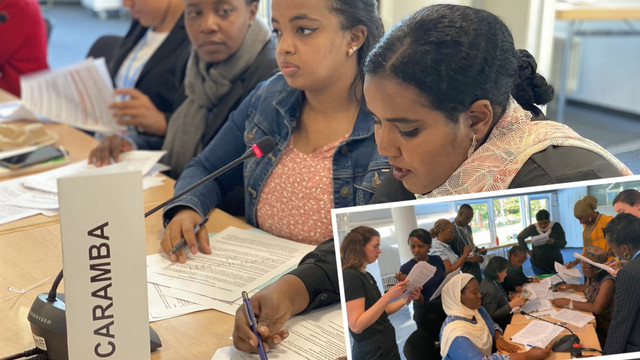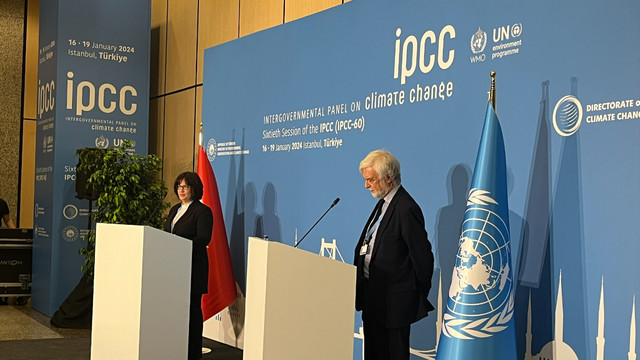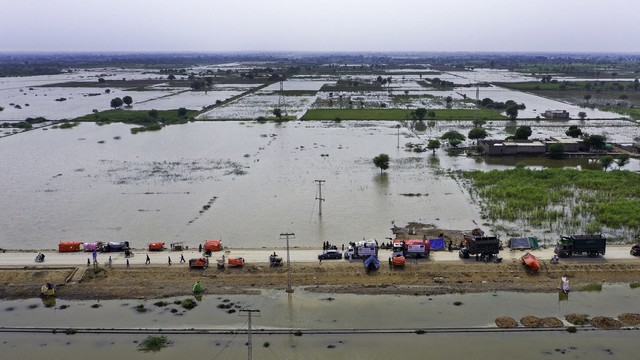Grants for developing nations to address climate change outweighed two to one by new debt
Servicing sovereign debt acting as a brake on countries’ ability to address the climate crisis.
Vastly more of the funds developing countries receive for projects to address climate change come as loans rather than grants, according to new analysis by IIED.
In 2021, the most recent year for which data was available, 122 developing countries received US$69.6 billion to pay for schemes designed to adapt to climate change or cut emissions. Of that, more than two-thirds, or $53.2 billion, took the form of new debt and less than half of that debt – $22.8 billion – came in so-called 'concessional' form which can give lower-income nations important fiscal room for manoeuvre.
As G20 heads of government gather in New Delhi this weekend, with an agenda of “One Earth, one family, one future”, progress on the unsustainable debt levels of lower-income countries is desperately needed. African leaders renewed their calls for debt relief this week at the Africa Climate Summit.
Sejal Patel, an environmental economist at IIED, said: “Climate finance is a mess that the richest countries – all big polluters – need to clean up as soon as possible.
“Most climate finance is provided as loans that only push governments further into debt, which means they have less money available to spend on things like healthcare and education for their citizens.”
IIED’s analysis found that, although the ratio of loans to grants was higher for countries with higher GDP per capita, the poorest 34 still had to finance half their climate projects through debt. (It looked at the least developed countries (LDCs), lower-middle-income countries and upper-middle-income countries.
The 34 LDCs for which data was available together received $9.6 billion of climate grants in 2021 and $9 billion in loans – but 10 of them actually received less money in grants than they were able to borrow.
Nine of the 10 – Bangladesh, Benin, Cambodia, Guinea, Madagascar, Rwanda, Senegal, Tanzania and Uganda – are listed by the International Monetary Fund as being at risk of defaulting on their debts. The tenth, Angola, is spending nearly half its entire national budget just to service its obligations, according to IIED research earlier this year. Senegal is spending more than a third.
Spiralling levels of debt act as a 'hidden handbrake' on the ability of some countries to address climate change. They spend so much paying down their debt that there’s little money left over to fund measures that would prevent climate-driven damage and cut emissions.
They are also more likely than richer countries to be vulnerable to crippling natural disasters such as drought or floods. When they are hit by a disaster their lack of funds forces them to borrow money to pay for recovery, adding to their total debt and beginning the cycle again.
IIED research earlier this year showed how the poorest and most climate-vulnerable nations – the LDCs and Small Island Developing States – have paid back some $50 billion to G20 nations to service debts since COVID-19 hit. Separate research laid bare the extent to which these countries’ debt repayments outweigh the climate finance they receive, and a further paper explored the possible solutions.
Patel added: “This weekend G20 leaders must make concrete progress on overhauling the international financial system to make it fairer for people suffering the most from climate change.
“The climate crisis is the great challenge facing humanity and changes here could save lives in countries that have done the least to cause it.”
Notes to editors
For more information or to request an interview, please contact Jon Sharman on jon.sharman@iied.org or +44 7407 727 886.
The data set analysed is the OECD DAC External Development Finance Statistics, 2012-2021, last updated 20 April 2023.
The list of countries in or at risk of debt distress only includes those eligible for the IMF’s Poverty Reduction and Growth Trust. A summary list is available on the IMF’s website (PDF).
'Concessional' finance is provided on terms more favourable than the open market would offer.
For more information or to request an interview, contact Simon Cullen:
+44 7503 643332 or simon.cullen@iied.org



